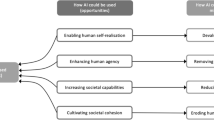Natural disasters, transportation accidents, spies, famines and droughts, serial killers, sex addiction, fluoridation, terrorism, rock music, assassination, global warming, Willie Horton, wrinkles, ozone depletion, Satanism, aging… What aspect of life, from the most momentous to the most trivial, has not become a workstation in the mass production line of fear?
Brian Massumi –“The Politics of Everyday Fear”.
Abstract
The article deals with the ambiguous relation between fear and expertise, and examines how it affects institutions’ legitimation. In contemporary societies the so-called expert systems can be considered as powerful trust creators. However their power can also cause fear, as their control over the majority of everyday life tasks can have a “disabling” effect on lay people. This double-edged role deeply influences the relation between citizens and institutions, the latter considerably relying on expertise in order to be perceived as rational actors. Fear, therefore, can be considered as a central element in determining the legitimacy of institutions in modern societies.
Similar content being viewed by others
Notes
Sen, for example, often refers to the old story of Buridan’s ass, which died of starvation in front of two identical haystacks between which it was not able to choose rationally. In that case, a casual choice would have been perfectly justified (Sen 2000).
References
Altheide DL (2002) Creating fear. News and the construction of crisis. Aldine de Guyter, New York
Altheide DL (2003) Notes towards a politics of fear. J Crime Confl Media 1:37–54
Altheide DL (2006) Terrorism and the politics of fear. AltaMira Press, Oxford
Altheide DL (2013) Media logic, social control, and fear. Commun Theor 23:223–238
Barbalet JM (2001) Emotion, social theory, and social structure: a macrosociological approach. Cambridge University Press, Cambridge
Bauman Z (2006) Liquid fear. Polity Press, Cambridge
Beck U (1992) Risk society: towards a new modernity. Sage, London
Bobbio L (1996) La democrazia non abita a Gordio. FrancoAngeli, Milano
Body-Gendrot S (2012) Globalization, fear and insecurity: the challenges for cities north and south. Palgrave Macmillan, London
Boswell C (2009) The political uses of expert knowledge: immigration policy and social research. Cambridge University Press, Cambridge
Bucchi M (2009) Beyond technocracy: science, politics and citizens. Springer, Dordrecht
Cahir J (2013) Balancing trust and anxiety in a culture of fear. Sage Open 3(2). doi:10.1177/2158244013484733
Elias N (1982) The civilizing process, vol 2, state formation and civilization, vol 2. Basil Blackwell, Oxford
Federico CM, Deason GM (2012) Uncertainty, insecurity, and ideological defense of the status quo: the extremitizing role of political expertise. In: Hogg MA, Blaylock DL (eds) Extremism and the psychology of uncertainty. Wyley Blackwell, Chichester
Frame JD (2012) Framing decisions: decision-making that accounts for irrationality, people and constraints. Wiley, New York
Furedi F (2005) Politics of fear. Continuum, London
Furedi F (2006) The culture of fear revisisted. Risk taking and the morality of low expectations. Continuum, London
Furedi F (2011) The objectification of fear and the grammar of morality. In: Hier S (ed) Moral panic and the politics of anxiety. Routledge, New York
Furedi F (2013) Authority: a sociological history. Cambridge University Press, Cambridge
Giddens A (1990) The consequnces of modernity. Polity Press, Cambridge
Giddens A (1991) Modernity and self-identity: self and society in the late modern age. Stanford University Press, Stanford
Glassner B (1999) The culture of fear: why Americans are afraid of the wrong things. Basic Books, New York
Goffman E (1974) Frame analysis. An essay on the organization of experience. Harper & Row, New York
Goodwin J, Jasper JM (2006) Emotions and social movements. In: Stets JE, Turner JH (eds) The sociology of emotions. Cambridge University Press, Cambridge, pp 38–62
Gray MG, Ropeik DP (2002) Dealing with the dangers of fear: the role of risk communication. Health Aff 21:106–116
Hankiss E (2001) Fears and symbols. An introduction to the study of Western Civilisation. Central European Press, Budapest
Hoggett P (2013) Governance and social anxieties. Organ Soc Dyn 13:69–78
Hubbard P (2003) Fear and loathing at the multiplex: everyday anxiety in the post industrial society. Cap Class 80:51–75
Illich I, McKnight J, Zola I, Caplan J, Shaiken H (1977) Disabling professions. Marion Boyars Publishers, London
Kuwabara K (2005) Nothing to fear but fear itself: fear of fear, fear of greed and gender effects in two-person asymmetric social dilemmas. Soc Forces 84:1257–1272
Lash S, Wynne B (1992) Introduction. In: Beck U (ed) Risk society: towards a new modernity. Sage, London
Liska AE, Lawrence JJ, Sanchirico A (1982) Fear of crime as a social fact. Soc Forces 60:760–770
March JG, Olsen JP (1984) The new institutionalism: organizational factors in political life. Am Polit Sci Rev 78:734–749
Massumi B (1993) The politics of everyday fear. University of Minnesota Press, Minneapolis
Onuf N (2012) World of our making. Routledge, New York
Pain R (2012) Whose fear is it anyway? Resisting terror fear and fear. In: Pain R, Smith SJ (eds) Critical geopolitics and everyday life. Ashgate Publishing, London
Pizzorno A (2007) Il velo della diversità. Studi su razionalità e riconoscimento. Feltrinelli, Milano
Salecl R (2004) On anxiety. Routledge, London
Schneier B (2003) Beyond fear. Thinking sensibly about security in an uncertain world. Copernicus Books, New York
Sen A (2000) Consequential evaluation and practical reason. J Philos 97:477–502
Sjoberg L (2013) The paradox of security cosmopolitanism? Crit Stud Secur 1:29–34
Stearns PN (2006) America fear. The causes and consequences of high anxiety. Routledge, New York
Svendsen L (2008) A philosophy of fear. Reaktion books, London
Tudor A (2003) A (macro) sociology of fear? Sociol Rev 51:238–256
Author information
Authors and Affiliations
Corresponding author
Rights and permissions
About this article
Cite this article
Busso, S. Modern institutions between trust and fear: elements for an interpretation of legitimation through expertise. Mind Soc 13, 247–256 (2014). https://doi.org/10.1007/s11299-014-0153-9
Received:
Accepted:
Published:
Issue Date:
DOI: https://doi.org/10.1007/s11299-014-0153-9




